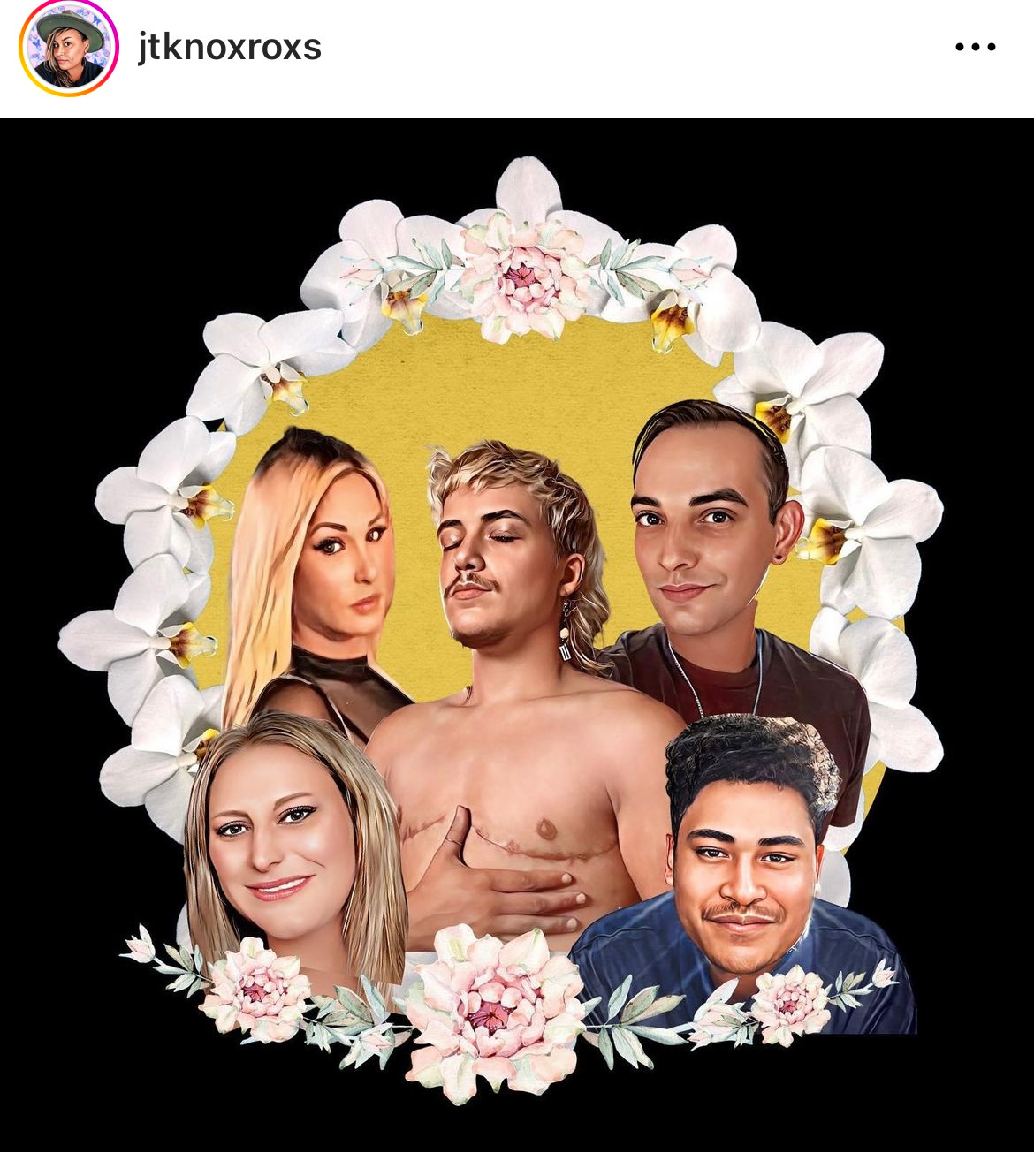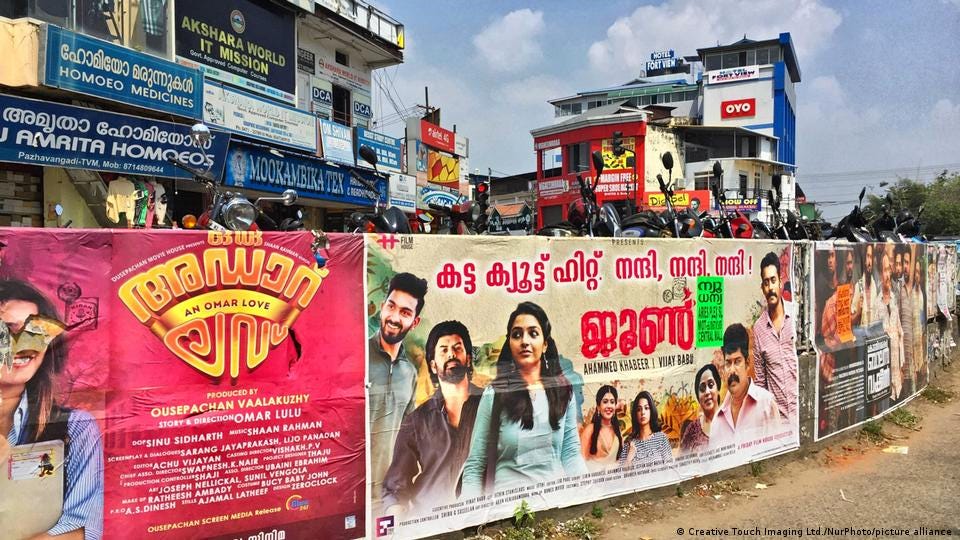Global Roundup: Remembering Club Q, Tackling Inequality in Mollywood, San Francisco Trans Support, Women’s Travel Guide, LGBTQ+ Activism in Argentina
Curated by FG Contributor Inaara Merani
Image by @jtknoxrox
At least five people were killed and 25 people injured after a gunman opened fire shortly before midnight on Saturday at Club Q, a nightclub and for decades Colorado Spring’s only LGBTQ+ venue.
The lives that were lost were Derrick Rump, a bartender who had found a community of people at Club Q; Daniel Aston, a loving bar supervisor; Ashley Paugh, a mother and an advocate for foster children; Kelly Loving, sister; and Raymond Green Vance, who was visiting the club for the first time.
Club Q opened in 2002 and was the only LGBTQ+ club in Colorado Springs up until recently. The club will be a symbol of the lives lost on this day, and the ongoing fight against homophobia and transphobia in the US and abroad.
Something like a mass shooting at an LGBT+ safe space is damaging beyond belief. There’s feelings of disrespect, disbelief and just pure shock. Nobody ever thinks it’s gonna happen to them, and sometimes it does.”– Tiana Nicole Dykes, lifelong Colorado Springs resident who described Club Q as a “second home full of chosen family”.
Since the massacre, an outpouring of love and support has been shown across the US and throughout the world. People are showing their solidarity with the victims and the LGBTQ+ community by sharing their stories and continuing the conversation.
The shooting comes at a time when the LGBTQ+ community in the US is facing political and social opposition and barriers to basic human rights. This is why we need to continue raising awareness about these issues and sharing the stories of queer peoples’ resistance and liberation.
Club Q Statement:
Mollywood is the multi-million dollar Malayalam-language film industry based in the southern Indian state of Kerala, Image: Creative Touch Imaging Ltd./NurPhoto/picture alliance. Photo via DW.
Mollywood is the Malayam-language film industry based in the southern state of Kerala, India. The industry produces around 150 films per year, with a profit of $69.7 million. Mollywood has been recognized for its unique themes and challenging discourse, and the industry has done very well in southern India. Although the industry has flourished, women in Mollywood continue to find themselves at a disadvantage. However, they have created a collective where women creatives can come together to support one another in their careers, and expose the wrongdoings of an industry dominated by men.
In February 2017, an actress in Kerala, Bhavana Menon, was abducted and sexually assaulted. Her assailants were reporteedly hired by a Mollywood actor, Dileep, who had co-starred with Menon in a number of movies. Although Dileep was accused and charged, the case is awaiting trial and he continues to produce and act in films.
Shortly after Menon’s assault, in May, a small group of women in Kerala state organized to combat gender inequality and abuse in the film industry. They formed the Women in Cinema Collective (WCC), one of the first formally registered women’s collectives in the Indian film industry.
Since its creation in 2017, the WCC has opened up opportunities for women in Mollywood, and has also expanded conversations on gender discrimination, pay parity, safer workplaces, and misogyny. The women in Mollywood have been working together to ensure a brighter future for any and all women who pursue a career in this industry.
However, working with the WCC has come with a price. Being so vocal about gender justice, actress, assistant director, and art curator – Archana Padmini – was thrown off a project and stopped getting calls for offers and auditions. Women associated with the WCC have also been trolled online and offline. Despite these threats to their safety and their careers, actresses and other professionals in the industry have fully embraced the fight. Actresses Parvathy Thiruvothu and Rima Kallingal created bags and t-shirts with the name that they were called by misogynists: feminichi, most likely a mix of ‘feminist’ and ‘kootichi’, meaning ‘loose woman’.
The reality of this industry, like many other film industries around the world, is that it is run by men, which can be catastrophic for many women’s careers in Mollywood. However, the WCC has worked with local bodies to ensure that every Malayam film production company will have to implement an Internal Commitee, and a report was also submitted to the Kerala Chief Minister regarding pay parity, women’s safety, and gender disparity in the film industry. A judge has now been appointed to investigate gender-related issues within Mollywood.
San Francisco mayor London Breed (D.) raises an LGBT pride flag at City Hall / Wikimedia Commons. Photo via Free Beacon.
Last week, the city of San Francisco announced that it would launch a program to provide low-income trans residents with unconditional cash support. The program, Guaranteed Income for Trans People (GIFT) will provide $1200 per month for 18 months to 55 eligible trans residents. GIFT will also provide access to gender-affirming medical care, mental health support, and financial coaching.
Black and Indigenous applicants, and applicants facing other barriers will be given priority in this program. Residents over 18, living in San Francisco and earning less than $600 per month are eligible to apply. There are no other conditions to receiving payment, except for completing a survey every three months. The applications are live and will be open until December 15.
We know that our trans communities experience much higher rates of poverty and discrimination, so this program will target support to lift individuals in this community up, -– Mayor London Breed
The creation of this program comes after years of grassroots movements to support trans rights in San Francisco. This pilot project is similar to other cash-giving projects that were created to support pregnant people, Black or Pacific Islanders, and artists. The city also has plans to launch two more pilot programs that will target youth.
The GIFT program will be supported by San Francisco trans organizations – San Francisco’s Transgender District and Lyon-Martin Community Health Service. San Francisco is the first city in the US to launch a program that directly provides income to low-income trans people.
Instagram: @niknakvargas @wanderessbook. Photo via BeLatina.
Wanderess, a women’s travel guide written by Colombiana Nikki Vargas and Elise Fitzsimmons, is a new interactive resource published by Unearth Women, a women-founded travel publication.
The book has checklists for packing and tips and advice for solo travelling and planning trips. There is also nuanced travel advice for new moms, BIPOC, LGBTQ+, and pregnant travellers, and tips for supporting women specifically while travelling alone. Wanderess includes advice and wisdom from experienced travel experts and inspires travellers to travel safer while supporting local women.
This guide, at the intersection of feminism and travel, is a comprehensive resource which also includes advice for specific communities: women of color, members of the LGBTQIA+ community, and expecting or new mums.– Refinery29 UK
Unearth Women has published a number of guides and resources that show travellers how to find and support women and BIPOC-owned businesses in over 40 cities. The idea behind the publication was to unearth women’s stories globally and to create a platform where women could feel heard and seen.
Fernanda Rotondo is an Argentinian feminist and LGBTIQ+ and human rights activist. Photo: UN Women/Gala Abramovich. Photo via UN Women.
Argentinian writer and photographer, Fernanda Rotondo, is known for both her art and her feminist, LGBTIQ+, and human rights activism. She is also the Gender and Human Rights Coordinator for ANDHES (Lawyers in Human Rights and Social Studies in the Argentinean Northeast). Rotondo is leading a major fight to advance the human rights of all Argentinians, with the hopes of a violent-free future.
LGBTQ+ rights in Argentina are strong on paper, however each of the nation’s 23 provinces has its own constitution and laws, which can lead to significant disparities in the provision of services, support, and basic human rights. In particular, public policies on gender-based violence are not comprehensive, leaving intersectionality out of the discussion of gender inequality.
Many provinces do not incorporate legislation to eliminate inequalities and gender-based violence…Trans women, in particular, continue to be the target of corrective violence [and] transfemicide […] due to the hatred of their gender identities and expressions. They also live in contexts of structural violence where their access to work, education and housing is affected and where they also suffer […] criminalization and police persecution. – Fernanda Rotondo
Coming out heightened Rotondo’s awareness of the discrimination and othering that many queer people faced in school and family settings. She has been a powerful advocate for the LGBTQ+ community for years. Rotondo recently joined ANDHES, a human rights organization that operates in the Tucumán and Jujuy provinces. She works on advancing intersectional feminist policies and protections for women and the LGBTQ+ community.
Our work is focused on the obstacles cis, lesbian and trans women face in their access to justice, – Fernanda Rotondo
The organization trains community legal counsellors to be able to drive social transformation by stressing an intersectional perspective that puts the agendas, experiences, and demands of indigenous and migrant movements first. ANDHES is critical to driving policy change for women and the LGBTQ+ community, and Rotondo also stressed the importance of civil society participation. The fight for gender equality and queer liberation for all peoples is multifaceted and requires support from as many people as possible.
We must unite with others and each other…The feminist ancestors undoubtedly blazed a path for us that we need to pursue, – Fernanda Rotondo
Inaara Merani (she/her) recently completed her Masters degree at the University of Western Ontario, studying Gender, Sexuality, and Women’s Studies with a specialization in Transitional Justice. In the upcoming years, she hopes to attend law school, focusing her career in human rights law.
Inaara is deeply passionate about dismantling patriarchal institutions to ensure women and other marginalized populations have safe and equal access to their rights. She believes in the power of knowledge and learning from others, and hopes to continue to learn from others throughout her career.








Fascinating roundup as usual. Sad news from the U.S. and good news from the U.S. too. The support for at risk trans people is laudable and forward-thinking.